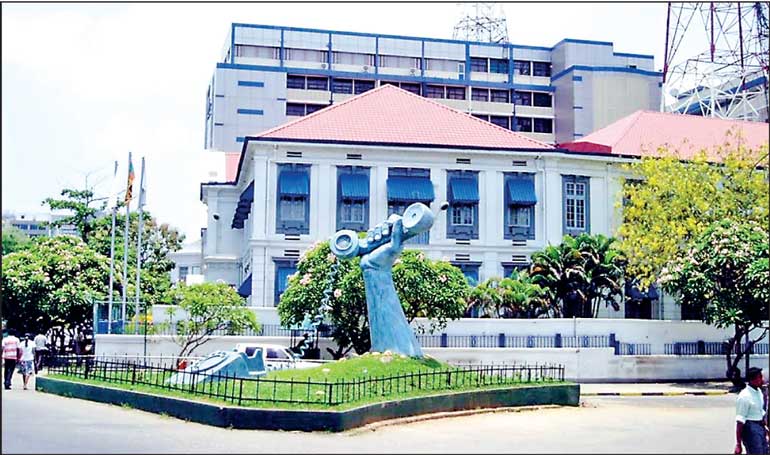India-China battle for Sri Lanka Telecom
Tuesday, 16 January 2024 01:17 – – 121

- Top telco Jio of Mukesh Ambani and private equity firm from China’s Guangdong province respond to Govt’s Request for Qualification; Lyca Mobile bids via Portuguese entity
The sale of the Government’s controlling 50.23% stake in Sri Lanka Telecom (SLT) has sparked an apparent battle between Indian and Chinese firms whilst some viewed the level of interest as disappointing.
The SOE Restructuring Unit (SRU) announced Jio Platforms Ltd. in Gujrat, India, Gortune International Investment Holding Ltd., c/o Capital Alliance Ltd. and Pettigo Comercio International LDA., c/o NDB Investment Bank Ltd. submitted their offers to the Government’s notice for Request for Qualification (RfQ).
Jio is part of Indian billionaire Mukesh Ambani’s business empire Reliance Group and appears the most credible and formidable contender. Brokerage BofA has pegged Jio Platforms’s valuation at $ 107 billion. BofA in a note said it expects Jio Platforms to continue adding subscribers this year while making deeper inroads with its advanced feature phone JioBharat and wireless broadband device JioAirFiber.
Gortune International Investment Holding is a private equity firm out of China’s southern hub – Guangdong province. Pettigo Comercio International is front for UK’s Lyca Group owned by Lankan born successful entrepreneur Allirajah Subaskaran. Pettigo Comércio Internacional, Lda is a company that owns the trademarks LYCAMOBILE and LycaFly. The company also provides domestic and long-distance telecommunications services.
SRU said the evaluation of the RfQs will adhere to the Special Guidelines on Divestiture of State-Owned Enterprises, a framework approved by the Cabinet of Ministers in July 2023.
The International Finance Corporation (IFC) acts as the Transaction Advisor for the divestiture of shares held by the Government in Sri Lanka Telecom PLC.
The original deadline for RfQ was 18 December following issuance of notice on 10 November. The deadline was extended till 12 January.
Industry analysts viewed the mere 3 responses as disappointing. The Telecommunication Engineers Union (TEU) has written an open letter to President Ranil Wickremesinghe on the very issue (see story elsewhere on this page). TEU is the most prestigious professional trade union in Sri Lanka Telecom PLC consisting of around 550 qualified, experienced, and passionate professional engineers representing 95% of the management of the Company.
The SLT sale is also facing other challenges as the company has gone to courts over the proposed merger between Dialog Axiata PLC and Airtel Lanka Ltd.
SLT PLC reported a revenue of Rs. 17,490 million with a growth of 3.7%, while Mobitel recorded 2.7% de-growth during Q3’23 compared to Q3’22.
The Group’s consolidated revenue for the quarter increased by 3.9% to Rs. 27.7 billion, compared to Rs. 26.7 billion in Q3 2022. SLT PLC revenue growth was driven mainly by growth in broadband, PEOTV and enterprise revenue streams. During the 3rd quarter, Mobitel regained its growth after several quarters of decline, and revenue has begun to increase in Q3 with a 3% growth over Q2.
Compared to Q3 2022, SLT Group’s operational expenditure (Opex) increased by 13.3% in Q3 2023 to Rs. 19.7 billion. Major causes of SLT’s rising Opex are increased costs related to electricity, repair and maintenance. Despite the growth in revenue that was recorded, SLT was unable to match the increase in costs which has impacted the Group’s profitability.
For the 9 months ending September 2023, SLT Group’s Opex was Rs. 57 billion, a 14.9% increase from Rs. 49.6 billion in the same period last year. Cost surges are attributed to economic conditions such as higher electricity tariffs, LKR devaluation against USD, and import restrictions.
The SLT Group’s financial performance in Q3 was significantly impacted by a steep decline in profitability of its subsidiary, Mobitel. Group EBITDA decreased by 13.7% compared to the corresponding quarter the previous year, primarily due to decrease in Mobitel EBITDA.
The drop in revenue and increase in Opex, have led Mobitel EBITDA to decrease during Q3. Accordingly, Group operating profit also dropped by 81% during the quarter. Group PAT decreased by 208% mainly due to operating loss in Mobitel and increase in finance cost of SLT PLC.






